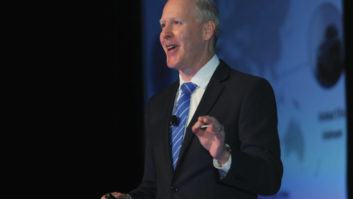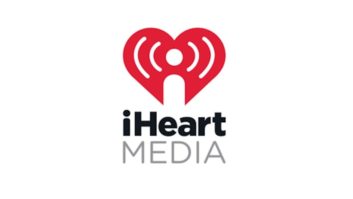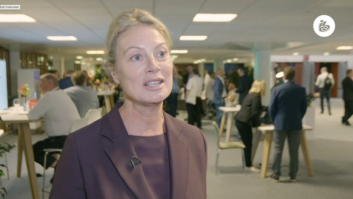Thanks in part to a burst in political advertising from the mid-term election last fall, iHeartMedia says it recorded its best revenue producing quarter in company history. But in reporting its latest financials, the company also said it has downsized its physical plant by 50% and its workforce by 20% since the pandemic started.
Fourth quarter revenue grew 6% to $1.13 billion, iHeartMedia reported on Wednesday.
Despite those revenue gains in the final quarter of 2022, iHeart said it lost money for the year “due to macro-economic factors that led to increased volatility and uncertainty.”
It posted a net loss for the year of about $263 million, according to its filing with the U.S. Securities and Exchange Commission. As of Dec. 31, 2022, iHeartMedia had $5.4 billion of total debt. The company said this week that it has no debt maturities until 2026.
Chairman/CEO Bob Pittman says the media company continues its drive to become a more efficient and effective organization, “a true multiplatform audio company − driven by innovation, supported by data and technology,” he said.
Pittman revealed on an earnings call Tuesday that the company has reshaped its footprint and workforce since the beginning of the pandemic in 2020. Due to a “real estate consolidation initiatives” aimed at reducing its structural cost base, iHeartMedia has downsized its office space by half and reduced its U.S. workforce by 20% as it realigned the organization.
[Related: “iHeartMedia Deploys New ‘Brand Safety’ Tool“]
In the quarter ending Dec. 31, 2022, the multiplatform group, which includes iHeart’s 850 radio stations, saw revenue increase $6.5 million, or 0.9%. The company said that was primarily resulting from increased political advertising revenue as 2022 was a midterm election year. Total revenue for the group was $733 million in the last quarter of 2022.
Revenue for the digital audio group increased $27.9 million, or 10.2%, to a Q4 total of $301 million. Those numbers were driven primarily by an increase in demand for podcasting and digital advertising, iHeart said.
The audio and media services division, which includes the Katz Media Group rep firm and RCS, saw revenue jump by $29 million in the quarter, a 44% bump YoY.
Pittman praised the radio division during the investor call on Tuesday in the face of the challenges brought on by current economic reality.
“The most traditional of our platforms, our broadcast radio assets, are importantly performing much better than they did during previous advertising downturns. … Broadcast radio with its unparalleled reach will also continue to power the development of new platforms and opportunities for us like our high-growth digital assets. This includes the iHeartRadio app, our podcast business, our new Metaverse platform and our leading positions on all major social media platforms with our nearly 300 million followers,” Pittman said on the call.
He also pointed to the company’s expansion into TikTok, where its follower count grew 300% in 2022 to 27 million.
For the year, overall revenue for the company rose to $3.9 billion, which was up 10% year-over-year compared to 2021. Excluding political revenue, iHeart said revenue increased 7% YoY.
Breaking down the three reportable segments: multiplatform group revenue was up 4% ($2.6 billion), digital audio group revenue grew 42% ($1 billion), and audio & media group jumped up 23% ($304 million).
The company’s modernization plans for its products and platforms are benefiting from the early adoption of technologies like AI, Pittman said on the earnings call, which began rolling out in 2020 to enhance the company’s music programming and scheduling.
“By providing real-time evaluation of listeners, sentiment and predicting audience engagement and reactions, we give our programmers a unique advantage and are able to deliver the best experience possible to our listeners,” he said.
As proof, Pittman cited the following internal research: “Stations where we rolled out this proprietary system saw a 15% increase year-over-year in the average quarter hour share of adults 18 to 49. This validates our ability to identify an opportunity, design the strategy and execute successfully and as often as we did here using new technology.”
Economic uncertainty will continue into 2023, according to Rich Bressler, president, CFO and COO of iHeart, who said revenues are pacing down so far two months into the new year. “With that in mind, we expect our Q1 2023 revenues to be down mid-single digits year-over-year. Our January revenues were down 1% year-over-year.”










